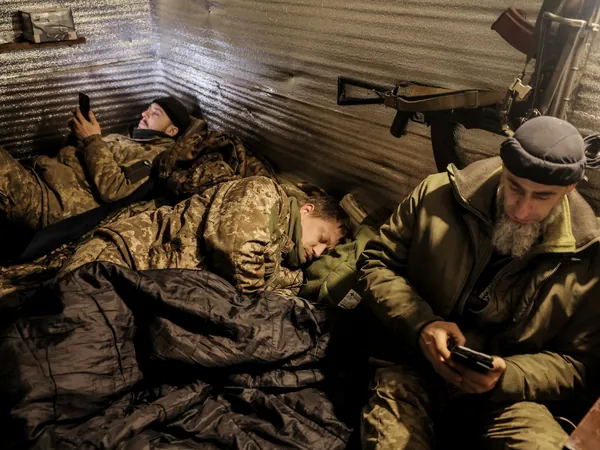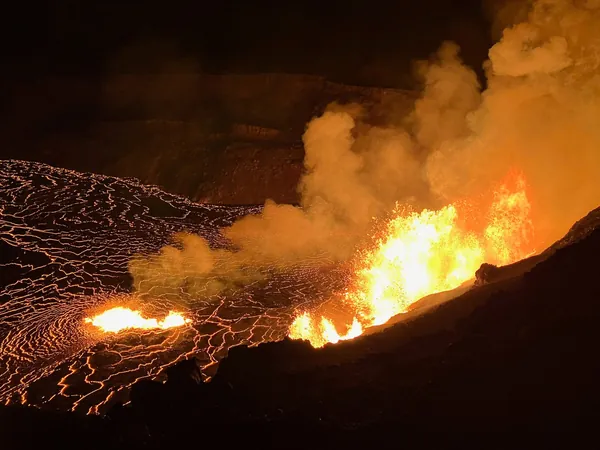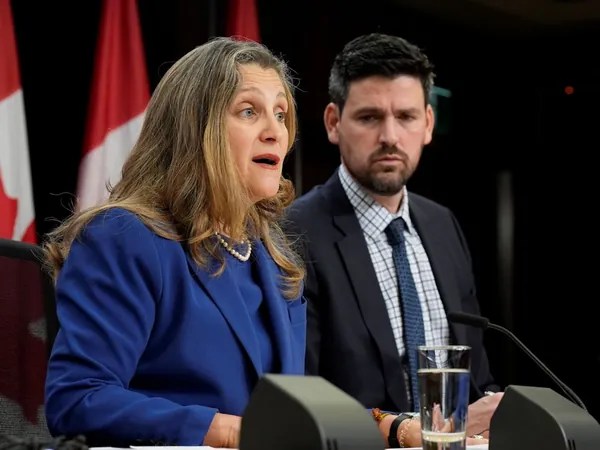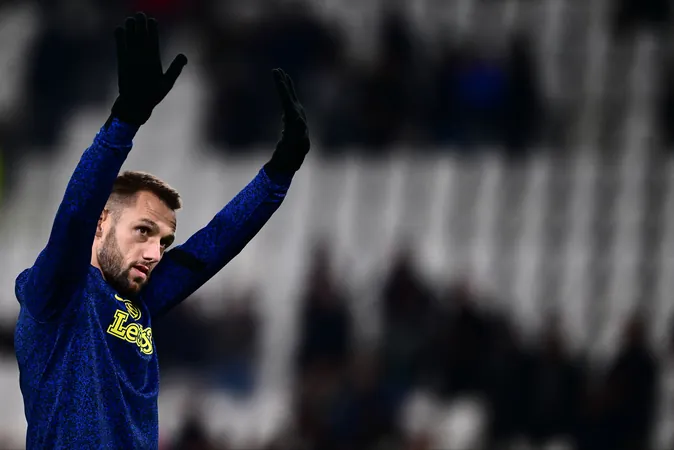
North Korean Soldiers Face Heavy Toll in Russia-Ukraine Conflict
2024-12-19
Author: Olivia
Introduction
In a startling escalation of the ongoing Russia-Ukraine war, North Korean soldiers have begun returning home in body bags, marking their first significant participation in combat alongside Russian forces. Ukrainian President Volodymyr Zelenskyy revealed over the weekend that Russian troops have started employing North Korean soldiers in aggressive assaults, leading to heavy casualties.
Integration into Russian Forces
According to Ukraine's military intelligence (GUR), North Korean troops have been integrated into elite Russian units, including Marine and Airborne divisions, actively engaged in operations in the Kursk region. This area of Russia is now being counter-invaded by Ukrainian forces, significantly raising the stakes in this multifaceted conflict.
Casualties and Challenges
Initial estimates from GUR indicated that combined losses on the first day of engagement reached around 200 soldiers, although independent verification has yet to confirm these figures. Tragic miscommunications have already resulted in the deaths of eight North Korean troops, reportedly gunned down by Chechen fighters of the Akhmat Battalion when they mistakenly opened fire on their allies. This incident underscores the serious coordination challenges posed by language barriers between the North Koreans and Russian units.
Tactical Developments
In attempts to reclaim Russian territories close to the Ukrainian border—specifically the villages of Plekhovo, Vorozhba, and Martynovka—North Korean forces faced intense drone surveillance and strikes from Ukrainian units. Video footage allegedly captured by Ukraine’s "Birds of Magyar" Marine Corps unit showed a line of bodies, raising alarms about the brutal realities of the battlefield.
Escalation of Conflict
The presence of North Korean soldiers has been perceived by Ukraine as a serious escalation, leading various units to report extensive casualties inflicted on their adversaries. For example, the Faust Unit of Ukraine's Special Forces claimed to have neutralized 33 North Korean soldiers, while the 8th Regiment reported 50 killed and 47 wounded over a mere two days. Reports from the 95th Polissia Airborne Brigade mirrored this trend, with significant kills claimed against North Korean troops.
Adapting Strategies
In light of the mounting losses, North Korean military units have begun establishing additional observation posts in an effort to counter drone attacks, indicating a shift in operational tactics following their initial setbacks. President Zelenskyy condemned Russian attempts to obscure the reality of these losses, alleging that Kremlin forces have engaged in heinous acts to conceal the identities of fallen North Korean soldiers.
Ukrainian Offensive Successes
In a broader context, Ukraine has been demonstrating increasing success in conducting sabotage operations behind enemy lines. Noteworthy strikes included the destruction of a Russian Su-30 fighter jet and a targeted attack on a fuel facility crucial for sustaining Russian military operations. Amidst these operational successes, Ukrainian forces also executed high-profile assassinations, including that of General Igor Kirillov, a key figure suspected of chemical warfare involvement.
Conclusion
As hostilities continue to escalate, Western long-range missile capabilities like the ATACMS are reportedly forcing Russian aircraft farther back from the front lines, thereby limiting their effectiveness in launching glide bomb attacks. Ukrainian military analysts have noted a notable decline in the frequency of guided aerial bomb strikes, attributed to Ukraine's newfound capacity to hit deep into Russian territory.
Meanwhile, Russia has increased airstrikes across Ukraine, targeting critical infrastructure and energy facilities, especially during adverse weather conditions. Ukrainian claims suggest these assaults have inflicted significant damage, yet the swift response of Ukrainian air defenses has prevented even greater losses.
As the conflict intensifies, the dynamics on both sides of the front line are rapidly evolving, signaling a potentially pivotal moment in the lengthy and brutal war. The increasing involvement of North Korean forces raises questions about their long-term implications for the conflict and the broader geopolitical landscape.









 Brasil (PT)
Brasil (PT)
 Canada (EN)
Canada (EN)
 Chile (ES)
Chile (ES)
 España (ES)
España (ES)
 France (FR)
France (FR)
 Hong Kong (EN)
Hong Kong (EN)
 Italia (IT)
Italia (IT)
 日本 (JA)
日本 (JA)
 Magyarország (HU)
Magyarország (HU)
 Norge (NO)
Norge (NO)
 Polska (PL)
Polska (PL)
 Schweiz (DE)
Schweiz (DE)
 Singapore (EN)
Singapore (EN)
 Sverige (SV)
Sverige (SV)
 Suomi (FI)
Suomi (FI)
 Türkiye (TR)
Türkiye (TR)